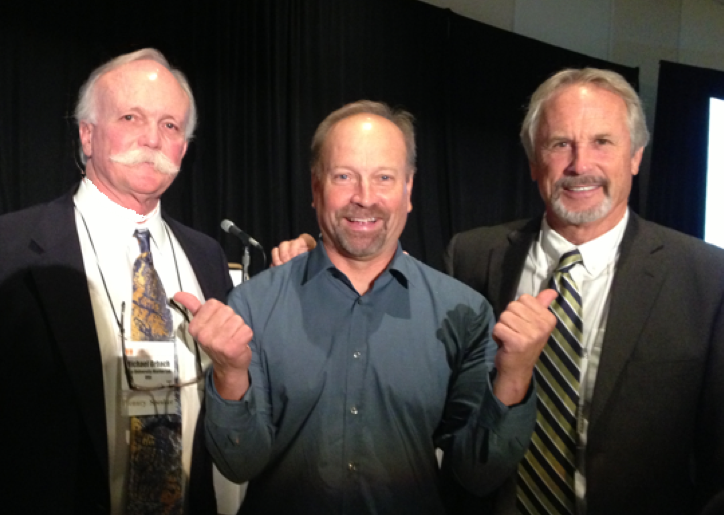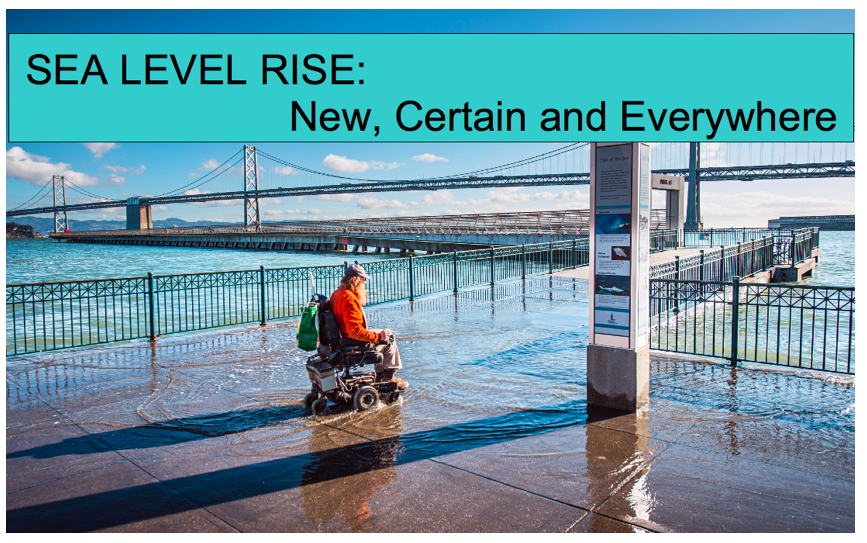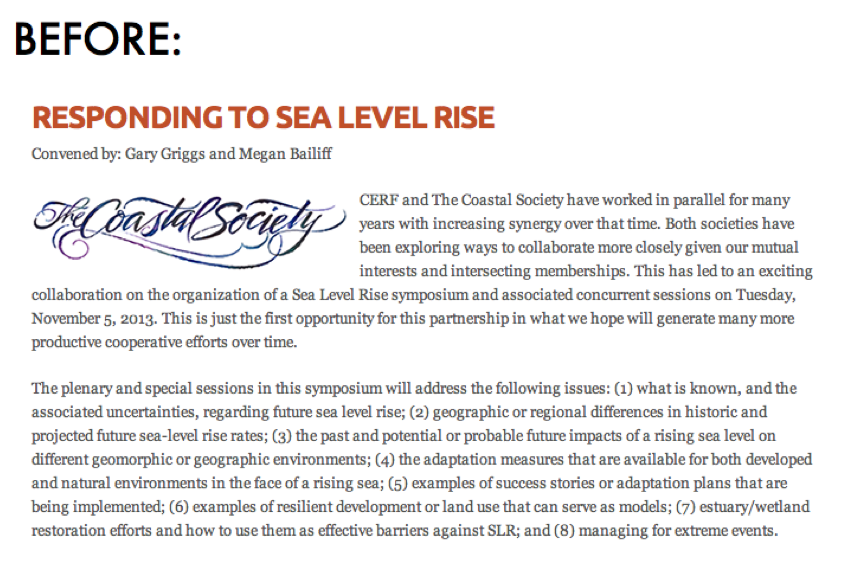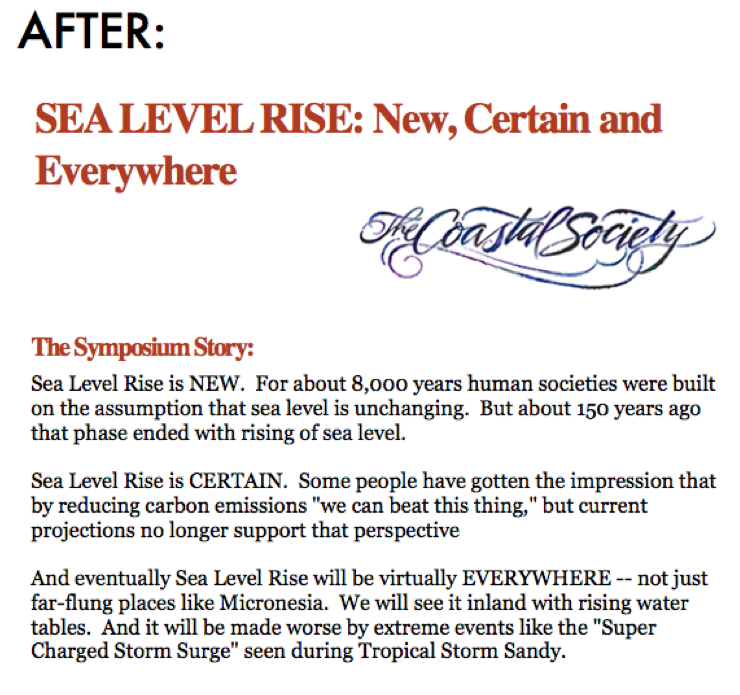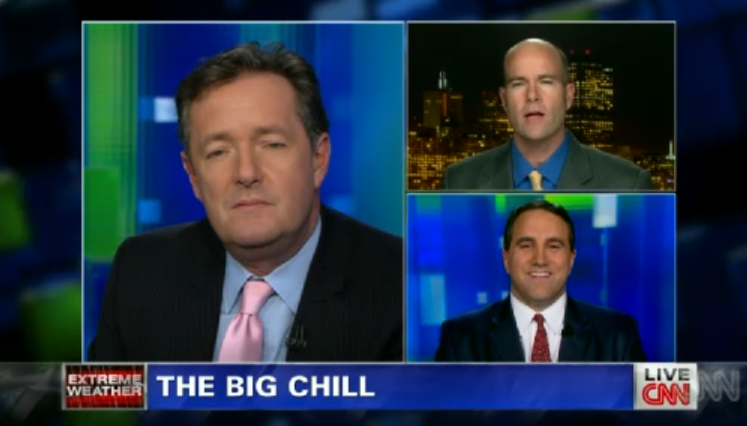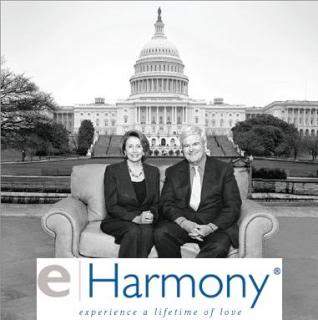#38) The Syracuse Sizzle Discussion with Marc Morano, Ruth Yanai, Mark Meisner, and Randy Olson
May 13th, 2010

THE SYRACUSE PANEL DISCUSSION: Highlights include hearing Marc Morano explain why he wears make up, stating that he is not now nor ever been a card-carrying member of any environmental group, and hearing a graduate student at the end take off on the sort of lecture from an audience member that is the bane of every moderator. WARNING: the microphone they put on me was bad news (distorting) so you may want to lower the volume when I talk (sorry).
#313) CERF: Anatomy of a Successful Plenary Panel on Sea Level Rise
November 6th, 2013
Take two already-gifted speakers, add a guy with a new book on narrative structure, turn up the heat with an important topic like sea level rise, throw in 6 weeks of planning effort and conference calls, then put them in front of 1,000 people and you’ve got an event that works. All of which is a tribute to the brave vision of Megan Baliff, the organizer who came up with a crazy idea this past summer. A crazy idea that worked.
THESE GUYS ARE GOOD. That’s Mike Orbach of Duke University on the left, Gary Griggs of U.C. Santa Cruz on the right. Together they turned in a great performance yesterday in our plenary panel at the Coastal and Estuarine Research Federation meeting in San Diego. Gary presented the SCIENCE, Mike provided the HUMAN PERSPECTIVE on how we will be impacted in the future. (btw, those are shadows on my shirt — though it looks like sweat, which wouldn’t have been a surprise)
I QUIT, NOW LET’S PUT ON A GREAT PANEL
That’s how it all started. My friend Megan Baliff contacted me in June asking me to be part of a “plenary panel” at CERF 2013 saying, “you’ll get to talk about your communications stuff in front of 1,000 people.” I was busy but thought why not and said sure.
But then in mid-September I looked at the website for the meeting and found out what I’d gotten myself into — a panel on “sea level rise” — something I know zippo about. I called up Megan, a little grouchy, asking what the hell she had gotten me into. She said, “No, no, no, this is exactly what we have in mind — we want you to bring “the Randy Olson storytelling thing.”
To make a very complicated story short, she assured me the two other panelists were wildly enthusiastic about the idea of me overturning their standard presentations and forcing them to do something they had never done before. She was wrong, they were definitely not psyched (can’t blame ’em), I sensed the whole thing would be too much work and too painful, so by early October I simply quit.
But while I was on the phone with Megan, handing in my resignation and she was gracefully accepting it, honest to goodness, an email from one of the two guys popped up and it said they had discussed my crazy ideas, agreed they had both given enough successful presentations in their careers, they could afford one horribly embarrassing debacle, so they were ready to give it a shot. Amazing timing. The whole thing came that close to never happening.
COMMUNICATING THE FUTURE. Sea level rise is “NEW” (after 8000 years of stability, the past 150 years now shows accelerating rising levels), “CERTAIN” (it’s gonna happen — nothing we can do now is going to stop it), and “EVERYWHERE” (not just the middle of the Pacific — it’s going to hit places considerably inland, even impacting groundwater dynamics in some inland areas).
YOU GET BACK WHAT YOU INVEST
So here’s the sad and simple truth of communication. EVERYONE dreams of doing it well, but almost nobody wants to put in the time and resources needed. That’s pretty much the truth of it all. Institutions run communications workshops thinking, “we’ll give this communications stuff a day then everyone will be all set for eternity.” I swear, they really do. But it doesn’t work that way. It takes time and long term commitment. This is why we’re going with the term, “Narrative Training” to refer to what we are now advocating with our Connection Storymaking workshops.
If you value effective communication, you have to INVEST in it. We certainly did for this event. We had an initial, obligatory conference call. I had to push the guys for a second one. But by the third week they began to realize we were concocting something challenging. That’s when the tide shifted. THEY began pushing ME to have more communication. I stopped having to push them. They started turning up the heat — saying look, if you’re going to throw us out in front of 1,000 people, we’d better get this thing smoothed out.
But from the start it was destined for success because the two guys had so much material to draw from, plus they have such good communications instincts to begin with. The only thing they could use some help with, as is the case with absolutely EVERYONE in the ENTIRE WORLD, was narrative structure.
This is why Hollywood movies are made by TEAMS of people. Not just one scientist sitting alone in his office organizing his slides. You HAVE to collaborate if you want to make the good stuff.
IF YOU CAN’T GIVE ME THE ONE WORD, I’LL SETTLE FOR THE THREE WORDS
It started with me asking the guys my standard question of, “What is the ONE WORD that encapsulates this ENTIRE subject of sea level rise” I pushed and pushed them. But they pushed back. They couldn’t find any “one word.” However, they did finally settle on three words. I said, “Close enough,” and those words turned into the title for the session — new, certain and everywhere. Which ended up sounding like the title of a book — like “Guns, Germs and Steel,” or “Hot, Flat and Crowded.”
From there the rest was a breeze. Once we had our three topics, it was just a matter of shaping their material into a solid template of, “1 – Perception, 2 – Reality, 3 – Communication, 4 – Humor.” For each of the three “stories” I helped them structure their material around this pattern, then we got on stage and they delivered the final ingredient — the performance. Gary came through with a lot of humor, Mike brought to bear his commanding oratorical presence, finishing the session with his list of four solemn recommendations on how we must start getting ready for sea level rise.
It really was a tremendous event. I was just the host of the party. The two guys were the life of the party. Overall, it was a whole bunch of fun. And there was one more element which was our “crowd contributions.” Using the ABT template we had contributions from people around the country — from Alaska to California to Florida — including an amazing spontaneous performance from Nic Kinsman (a former student of Gary) talking about sea level rise problems in Alaskan coastal villages.
And on the humor front, I interviewed Andrew David Thaler last week about his hilarious, “Drown Your Town” feature. He sent me some great samples to share with the crowd (thanks Jackie Yeary for initially telling me about his website) including the fact that of the first 1,000 people asking him to “drown towns” a third wanted to see Washington D.C. underwater because of the shutdown, plus they asked him to make the water brown.
WE DON’T NEED MORE SCIENCE, WE NEED GREAT COMMUNICATION LIKE THIS
When we finished, the first person for the Q&A was a young woman who stepped up to the microphone, literally turned her back on us, then spoke to the entire crowd of a thousand. She said basically, “I know some of you may find this offensive, but we don’t need more science — what we need is effective communication like this.” It was such a wonderful and powerful endorsement that Gary asked me later if I had hired her — I had not (and by the way, the last time the first speaker in a Q&A turned their back on me it was the guy at Syracuse who told the 250 people in the audience, “This guy’s book is great, but this talk of his sucked” — but that’s a different story).
It was a very gratifying experience. Mike, Gary and I went to dinner the evening before and kind of braced ourselves for the big experiment. No one felt certain the thing would work. But you know what, there’s a kind of excitement that comes from taking chances like that. Both of them absolved me of potential guilt — saying that even if it ended up as a mess, they were excited to just be trying something different.
And in the end, all I can emphasize again is how much effort it took. There was very enthusiastic applause at the end and a whole crowd of people came up to the stage to rave about how much they enjoyed it. One of the organizers said he had taken part in probably two hundred panels over the years, but this one was the very best. Which was great. But let me just make it abundantly clear. I don’t think any of the three of us have put that much effort into a public presentation, ever before. I know I haven’t (and btw, back when I was a scientist I was notorious for, “organizing my slides on the plane”).
So just ask yourself — how important is communication? That’s the bottom line.
PLENARY PANEL: THE HOME MAKEOVER EDITION
Here’s the “Before and After” of the event description on the CERF website over the past month — the initial description of the event before I was recruited, then the “makeover” the three of us gave it — adding “narrative structure” to the content. This is the exact goal of our new book, Connection: Hollywood Storytelling meets Critical Thinking — which by the way, Dorie, Brian and I discuss in detail in this great podcast with Skeptic Magazine that they posted yesterday.
#259) DEBATING MORANO: Why… oh, why?
January 24th, 2013
How long will this continue? The evolution folks figured this dynamic out a long time ago. What’s wrong with the climate crowd? Doesn’t everyone realize it’s a no win situation? Why do it? NONE of Morano’s opponents have ever been any good. Is the opportunity to be on TV just too hard to resist? And hasn’t anyone in the climate community heard of “The Gish Gallop“?
IF YOU CAN’T BEAT ‘EM, TRY TO DISCREDIT ‘EM?
space
IF YOU THINK THE GUY IS DISHONEST, THEN WHY DEBATE HIM?
In 2010, when I first started the Benshi, I did a lengthy interview with longtime climate skeptic Marc Morano. He was in my movie “Sizzle: A Global Warming Comedy,” in 2008 and we’ve remained friends, trading emails occasionally. I periodically enjoy his jabs at the environmental community, and he has a better grasp of the broader aspects of showmanship than most enviros. He also joined our post-screening panel discussion at Syracuse University a couple years ago.
As part of my interview with Marc I had a couple of professors of rhetoric, view all the clips present at the time of him “debating” climate folks — which was 4 then, but is probably about a dozen now. Both of them had the same observations. That it’s largely hopeless.
First off, rule number one for debating, which they both cited, is “attack the argument, not the man.” If you think your opponent is a dishonest liar then why debate him? Seriously. Why? Proper debate is meant to be a rational process of laying out arguments. Lying is irrational. If you show up for a fencing match and your opponent has a Bushmaster semi-automatic weapon are you going to ask the judge to disqualify him, or are you going to just call the entire thing off.
It’s the same deal — these climate folks are trying to convince the moderator Morano shouldn’t be listened to. In this latest case, this guy plays the oil companies card, which you can see Marc disagreeing with and I know that at least in the past that has not even been the case — he is not very well funded — it really is kind of a lie propagated by a lot of climate folks who do not know the facts but it makes for a good story. I know Marc. I have plenty of complaints about him and have criticized him firmly in my film and blog posts. But I also know he has not gotten wealthy from what he does, was not supported by the oil companies (at least last time I checked with him), and I really hate people who just run with that sort of dishonesty in trying to discredit opponents.
yup
EVOLUTIONISTS FIGURED OUT “THE GISH GALLOP” LONG AGO
If you want the best possible advice on how to deal with this problem of being “challenged to a debate,” you should probably consult Genie Scott, Director of the National Center for Science Education (which despite its name is not a government organization — it’s the sort of independent, highly motivated and highly focused organization the climate world needs).
She coined the term, “The Gish Gallop,” which is presented in great detail here. It’s what Morano skillfully does. And Genie has recommended not “debating” these types of folks.
So why do the climate folks continue to do so? And now Morano’s upped his game to Piers Morgan on CNN twice (he “debated” Bill Nye a few weeks ago who was just as bad as the others), who may not be your favorite host, but has a very high profile these days. Way to go, climate folks — way to help your opponent work his way up the ranks.
He’s already had an 8 page spread in Esquire magazine. How long until he’s on “60 Minutes”? And when that happens and everyone wonders how, a key part of the answer will be all these white knights who tried to ride into battle with him on TV talk shows. They have paved the way upwards.
plug
P.S. MY BROWN UNIVERSITY TALK FEB. 13
Next month I’m doing a week-long visit to Brown University. On Wednesday February 13 I’ll be giving a talk titled, “CLIMATE SKEPTICS: There here, they’re “queer,” get used to them” — with the “queer” part meaning out of the ordinary. The title is prompted by a run-in with a climate scientist last month who was STILL spouting the old 2006 line of, “we need to ignore them and they will go away.” That didn’t work. They ALREADY succeeded. Catch up with the times. There is no climate legislation today. The “ignore them” strategy failed. Move on.
At a time when the nation appears to be unraveling over it’s inability to achieve political unity, it’s unfortunate that climate skeptic Marc Morano is waging such a vicious campaign against the spirit of compromise.
CRUCIFIED. Political compromise is perhaps the most desperately needed quality right now in this beleaguered nation. When Gore’s WE campaign was launched in 2008 as the first and only major manifestation of the $300 million he had raised to communicate about climate, it seemed pretty weak. But still. To now come after the politicians who got talked into posing for their lame couch commercials is to make a loud statement against the entire notion of political compromise, which at this point really should be considered to be anti-American given our current dire financial straits.
Read the rest of this entry »
#26) SOLD OUT IN TUCSON (500 SEATS): BEST SIZZLE SCREENING EVER!
April 1st, 2010
We had a tremendous Sizzle screening last night in Tucson, Arizona. We had a full house at The Loft Cinema which is an amazing venue — excellent projection with an awesome sound system. All 500 seats sold out and another 50 or so people were turned away at the door. Huge thanks to super-publicist Karen O’Hara and Karl Flessa of Univ. of Arizona who masterminded the event. They even hired an out-of-work polar bear (global warming victim, obviously) to greet the guests.
The movie was followed by a panel discussion that included U. of Az professors of journalism, cinema, and climate science. Fireworks erupted for a while as two very vocal climate skeptics (or were they deniers, or contrarians, or anti-scientists?) launched into the standard talking points, though I finally cut them off when they got to claiming that the entire climate community bought into global cooling in the 70’s (which isn’t true — it was just a small faction, driven by some misguided media), and the loudest skeptic redeemed himself at the end by saying nice things about my mother (told you they’re good at communication) which brought a round of thank-you-you’re-done applause, offseting the previous boos.
It was an awesome night. Tucson is an incredibly good venue. They also turned out a standing room only audience for my talk during the day. Really good folks who are genuinely interested and concerned. What a great way to lead into the month of April!
#24) TERMINATOR 5: POSTPONEMENT DAY
March 25th, 2010
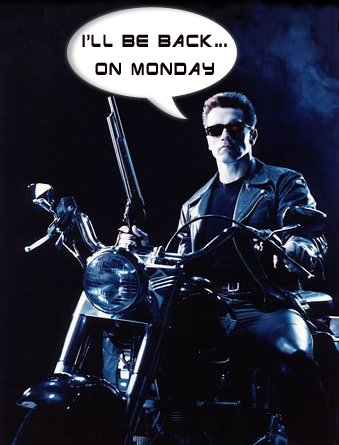
I’m in D.C. this week, giving a series of talks, mostly presenting my analysis of “An Inconvenient Truth,” using the principles of “Don’t Be Such a Scientist.” I was going to present the written version of it here today, but instead will wait until Monday to make sure I get it all right.
In the meanwhile, here’s my screening/speaking schedule for the spring:
MARCH 31 – “Sizzle” Screening at the University of Arizona
APRIL 12 – William and Mary College: “Sizzle” screening and “Don’t Be Such a Scientist” talk
APRIL 19 – Syracuse University, “Don’t Be Such A Scientist” Talk 4:00-5:30pm on the SU campus in Maxwell Hall
“Sizzle” Screening and panel discussion 7:30pm on the SUNY-ESF campus, Baker Lab, Room 145
APRIL 20 – University of Massachusetts, Lowell: “Sizzle” screening and “Don’t Be Such a Scientist” talk
APRIL 21 – MIT: “Sizzle” screening and “Don’t Be Such a Scientist” talk
Knowledge
December 16th, 2009
KEY LINKS FROM EACH ESSAY
#1) “Bob Ballard, The Great Explorer” produced by Max McClellan, 60 Minutes, November 2009
#2) The Imagine Science Film Festival
#4) “Resurrecting The Extinct” produced by Shari Finkelstein and Meghan Frank, 60 Minutes, January 2010
#5) “Global Warming Is Not a Crisis” by David Malakoff, NPR, March 2007
“Ed Begley, Jr. Loses Control Over Climategate” Youtube
#7) Polar Bear PSA by Plane Stupid
“The New Pitch: Do ads still work?” by Ken Auletta, The New Yorker, March 2005
#8) Talking Science
#10) Chris Keane
#11) “Toyota’s Slow Awakening to a Deadly Problem” by Bill Vlasic, New York TImes, January 2010
Fox News Interview with Sigourney Weaver
#12) Jeremy Rowley
#13) Mike Mann
Society of Professional Journalists’ Code of Professional Ethics
#14) CBS News Clip
HBO Interview with Margaret Nagle
#17) Marc Morano
#18) Climate Depot
#19) Don’t Be Such A Scientist
#20) Ed Begley, Jr.
#21) Bill Maher
#22) Ed Begley, Jr.
#23) Jean Goodwin
“What do the Moranogate emails reveal?” by Tim Lambert, Deltoid, March 2010
#25) Montreal Protocol
#26) “Among Weathercasters, Doubt on Warming” by Leslie Kaufman, New York Times, March 2010
#27) “If Our Messages Are To Be Heard” by Peter Kareiva, Science Magazine, December 2009
#28) Doug Stevenson
#30) Into the Arms of Strangers
#32) USC Wrigley Catalina Island Student Films
#33) Steve Ting
#34) John Sterman
#35) Monsters from the Id
National Academy of Sciences Science and Entertainment Exchange
#37) “Climate Change and the Integrity of Science” Science Magazine, May 2010
“Sweating the Details in Climate Discourse” by Andrew Revkin, Dot Earth, May 2010
Pat Michaels clip from “Sizzle”
#38) Syracuse University Panel Discussion
“Senator, you’re no Jack Kennedy”
#39) USC Wrigley Catalina Island Student Films
#40) Development Girl
#41) “Where is the left?” by David Roberts, Grist, May 2010
#42) “Don’t Be Such a Scientist or The Negating Culture of Science and its Costs” by Skeptvet, The SkeptVet Blog, May 2010
#43) Michael Caine’s “Acting for the Camera”
“Why Science Needs to Step Up Its PR Game” by Erin Biba, Wired Magazine, May 2010
#44) 1969 Santa Barbara oil spill
#45) Jacques Cousteau
#46) Was ANYTHING learned from the 1969 Santa Barbara Oil Spill?
#47) EPIC 2014
#48) The Powers That Be
#49) www.randyolsonproductions.com
#50) Rebecca Skloot
“The Immortal Life of Henrietta Lacks”
#51) “Real Sports with Bryant Gumbel”
SPECIAL BENSHI – Phelim McAleer
#52) Karel Liem
#53) “Curious for Life” Ad Campaign
“Empowering the Grassroots” Video
“Science Needs to Step Up it’s P.R. Game” by Erin Biba, Wired, May 2010
#54) Collins Center for the Arts
#55) Americans United for Separation of Church and State Event
#56) “Democrats Call Off Climate Bill Effort” by Carl Huse, The New York TImes, July 2010
“Climate Bill, R.I.P.” by Tim Dickinson, Rolling Stone, July 2010
“Who Cooked the Planet?” by Paul Krugman, The New York Times, July 2010
“Four Ways to Kill a Climate Bill” by Lee Wasserman, The New York Times, July 2010
“Friedman on climate inaction: We’re Gonna Be Sorry” by Joe Romm, July 2010
#57) Sharkwater
“Shark Week — Education or Just Entertainment?” by Chris Palmer, The Huffington Post, July 2010
Cane Toads: An Unnatural History
#58) Shirley Sherrod NAACP incident
#60) David Roberts of Grist Magazine
#61) Wes Skiles
#62) “Thou Shalt Study Science” by Vlatko Vedral, GOOD, August 2010
#65/66) Centers for Disease Control in Atlanta
#68) “Salt of the Earth” tribute screening at University of Maine’s Collins Art
Randy Olson on WERU’s Talk of the Town show
#69) Dr. Eugenie Scott
“Why I Won’t Debate Creationists” by Richard Dawkins, The Richard Dawkins Foundation, May 2006
#70-72) John McEuen
#73) Real TIme with Bill Maher
#75) 10:10 – No pressure
“A ‘Pretty Edgy’ Climate Campaign” by Andrew C. Revkin, Dot Earth, October 2010
“Days that Suck” by Bill McKibben, Climate Progress, October 2010
#76) Dr. Eugenie Scott
#77) Alexis Gamble
Imagine Science Film Festival: 2010 Film Guide
#78) Dr. Eugenie Scott Interview
#79) Lionfish PSA
#80) Randy Olson on NPR’s “Living on Earth”
#81) “Poll: CDC is best federal agency” by Alexander Burns, Politico, July 2010
#82) Science Cheerleader
Science Cheerleaders Perform at the USA Science and Engineering Festival
Science Cheerleader: The Debate
#83) Don’t Be Such A Scientist
“From a Rapt Audience, a Call to Cool the Hype” by William J. Broad, NY Times, March 2007
#84) Amber Waves of Green: A Red State Town Turns Green
#85) Commercial Fisheries News
#86) “Your Dot: What’s Really Boring?” by Andrew C. Revkin, Dot Earth, November 2010
“Science Cheerleader” Articles
#87) “Surfer’s Sudden Death Shines Spotlight on Dengue Fever” by Brian Mossop, Wired, November 2010
“Andy Irons Tribute” by Brian Bielmann
#88) Cool It
Rotten Tomatoes page for “Cool It”
#89) Amazon’s “The Best Books of 2010: The Top Ten (and More)”
“The Ghost of Kyoto Visits Cancún” by Andrew C. Revkin, Dot Earth, December 2010
#91) “Climate Groups Retool Argument For Global Warming” by Christopher Joyce, NPR, December 2010
“Education versus indoctrination” by Judith Curry, Climate Etc., December 2010
